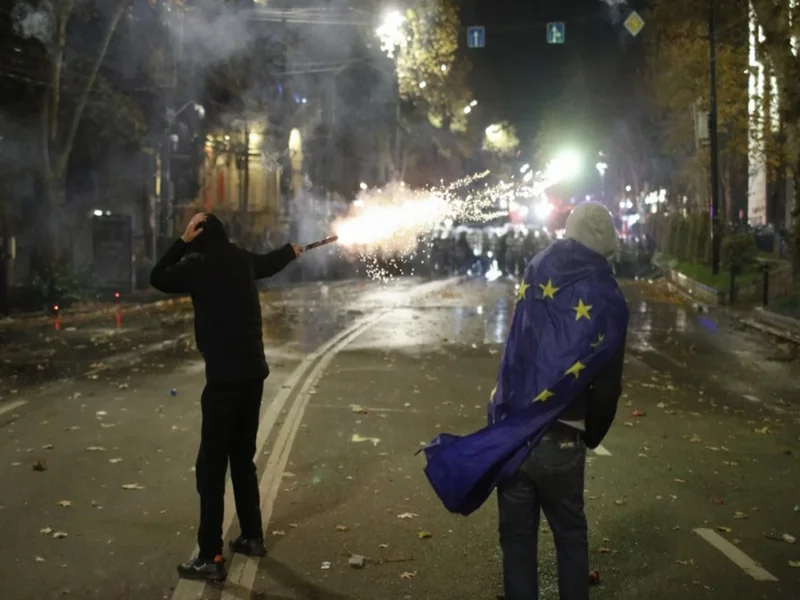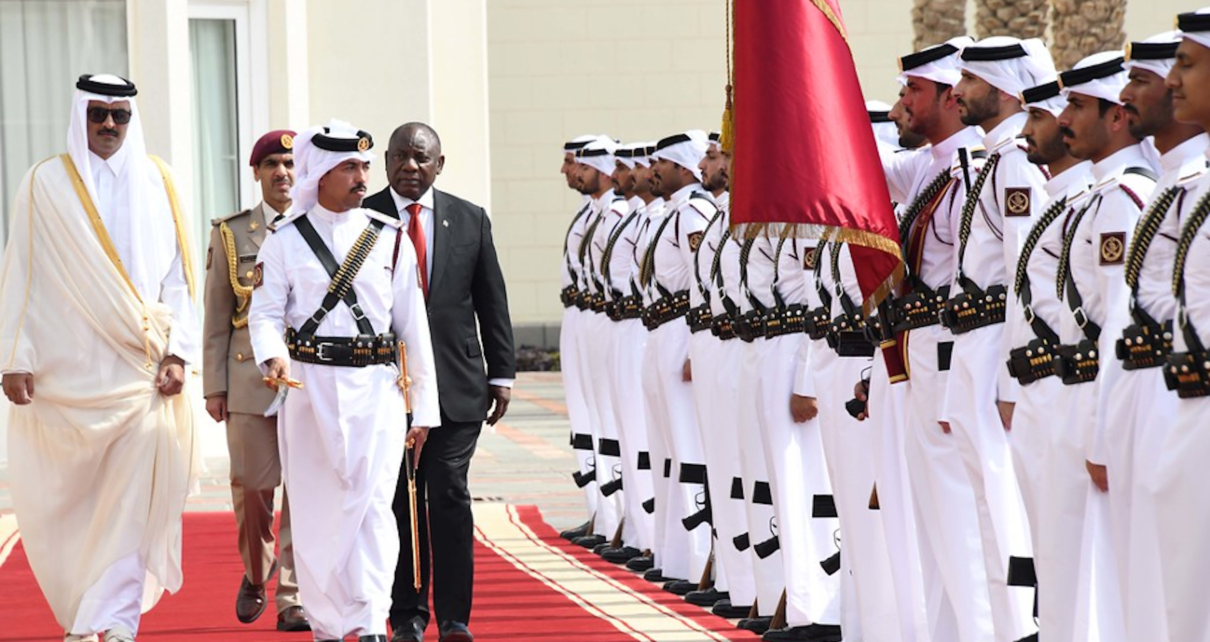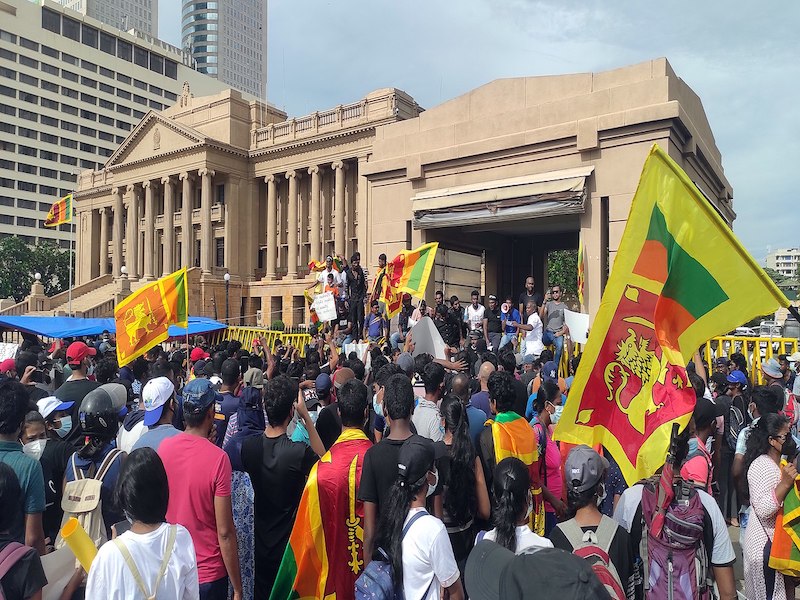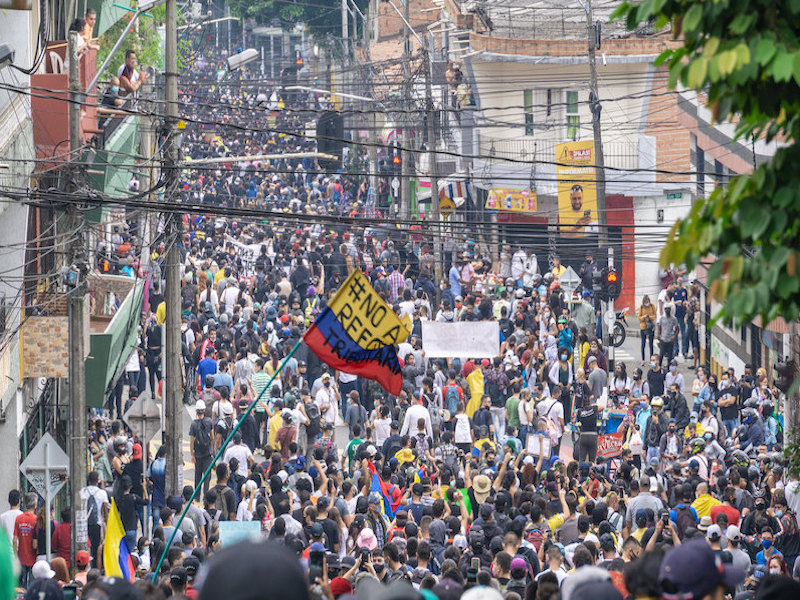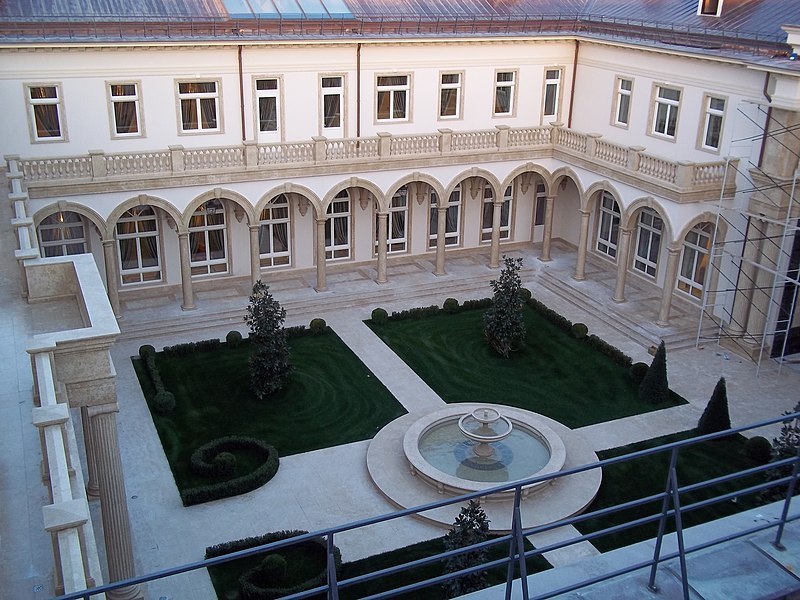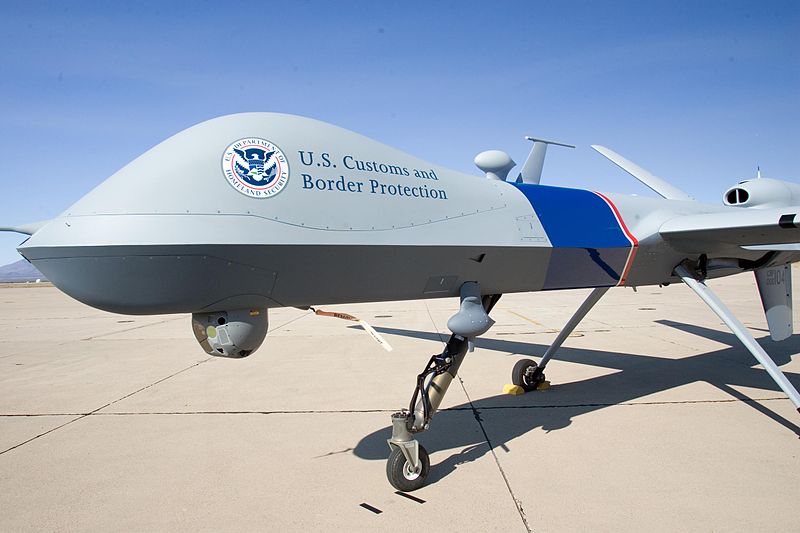In October 2024, the Black Sea state of Georgia held a heavily disputed parliamentary election. Foreign policy dominated pre-election discourse among parties. For both the current ruling party and the various parties making up the opposition, the future of relations with the European Union (EU), NATO, and Russia were at the center of the discussion. Read More…
Tag: protests
“Postcolonial Studies” and “Critical Theory”: Who Pays and Who Profits?
This past spring, encampments began mushrooming on North American university campuses as part of a demand that the universities divest from all association with Israel. Most participants subscribed to some form of the ideology that both pushes the inaccurate notion that Israel is committing “genocide” against Palestinians and opposes Israel’s very existence. These are core Read More…
Sri Lanka: Canada’s Foothold in the Indo-Pacific?
As Sri Lanka’s economic crisis began to unfold in March, 2022, nationwide protests erupted that led to the defeat of political royalty Gotabaya Rajapaksa and the start of the Ranil Wickremesinghe-led government. The economic crisis is a result of low foreign reserves and a high current account deficit, which has left the country dependent on Read More…
Colombia Protests, NATO Partnership, and Democratic Principles
Over the last two decades, NATO has advanced its enlargement policy, welcoming new members and partners. Colombia was the first – and currently, the only – Latin American country to become a NATO global partner, cooperating on issues such as cybersecurity and corruption. Both sides of this partnership work together to further their goals. Personnel Read More…
Energy-sector Corruption and State Policy in Russia
In this article Joseph Bouchard examines the issues of corruption in Russia’s energy sector exposed by Alexei Navalny, how those issues impact Russia’s influence in the global energy sector, and how resolving them could impact Russia’s future and its relations with the West.
Hong Kong’s Illiberal Education Reform
Julian Snelling examines the recent Hong Kong reform of the Liberal Studies curriculum, analyzing the extent to which such policy limits freedom of expression amongst an increasingly politicized generation in the region.
‘The Kids Are Alright’: How Young Journalists Find Ways to Report on Social Issues in Russia
In this article, Maria Zelenova examines how Russian independent journalists have been able to adapt under harsh censorship laws, creating a new ecosystem for reporting on important stories.
Is Antifa a terrorist organization?
In this edition of the Editors’ Forum, the program editors at the NAOC give their input on Antifa’s classification as a terrorist organization and its implications.
Black Lives Matter Protests Under Aerial Surveillance
Black Lives Matter protests have captured the news media’s attention lately. Governments have also been observing these mass movements using sophisticated surveillance technology usually reserved for military applications. Chloé Ketels unpacks some of the ethical implications of governments’ utilization of this technology for domestic security purposes.
Debunking the Myth that Agricultural Subsidies Preserve Traditional Lifestyles and the Environment
Since the signing of the GATT, nations have sought to justify their trade distorting agricultural subsidy schemes on the basis of several rationales. In this article, Dan Poliwoda debunks one of those rationales: the myth that agricultural subsidies protect traditional rural lifestyles and the environment. Later, he discusses how anticipated reforms to the EU’s Common Agricultural Policy more closely align with this stated objective.

